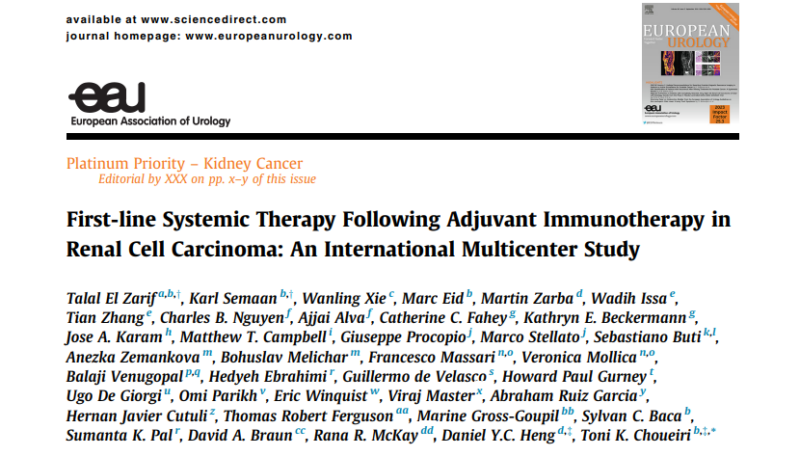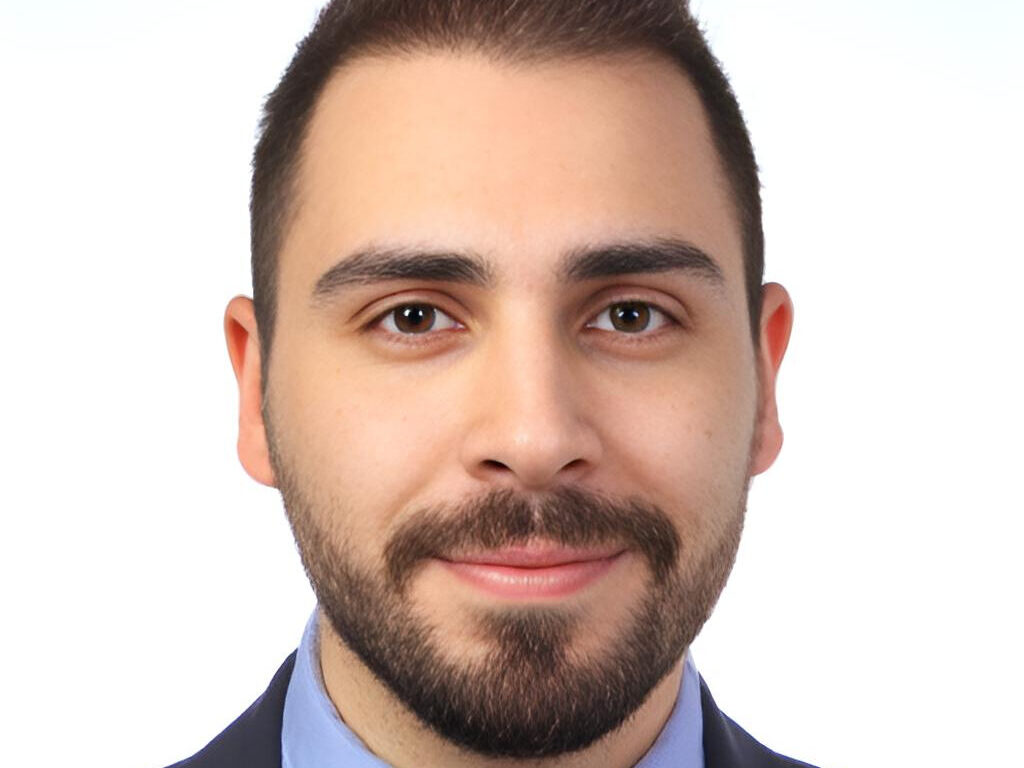Karl Semaan, Postdoctoral Oncology Research Fellow at Dana-Farber Cancer Institute, shared a post on X about a recent paper by Toni Choueiri et al. titled “First-line Systemic Therapy Following Adjuvant Immunotherapy in Renal Cell Carcinoma: An International Multicenter Study” published in European Urology.
Authors: Talal El Zarif, Karl Semaan, Wanling Xie, Toni Choueiri et al.

“Just in European Urology, our study on first-line systemic therapy following adjuvant immunotherapy in renal cell carcinoma.
Effort co-led with Talal El Zarif, with amazing mentorship from Daniel Heng and Toni Choueiri.
Keynote-564 trial showed that adjuvant pembrolizumab significantly improves disease-free survival and overall survival (OS) for patients with RCC. However, there is a scarcity of data on the first line (1L) systemic therapy regimens for RCC tumors that recur either during or after the cessation of adjuvant immunotherapy (IO).
This large international multi-center study included 94 patients who had recurrent RCC following adjuvant IO therapy from 29 institutions across 13 countries.

We first examined recurrence patterns where most tumors recurred in the lungs, lymph nodes, and bones. Interestingly, bone metastases were more frequent in patients who recurred while on or within 3 months of completion of adjuvant IO therapy (20%) vs. patients who recurred beyond this period (2% only).

We next focused on patients who received 1L systemic therapy following adjuvant IO. This included 76 patients with a median follow-up of 15 months. The 18-month progression-free survival (PFS) rate was 45%, and the 18-month OS rate was 85%.


Half of the patients received 1L VEGF-TT monotherapy while the rest received IO-based therapy including IO+VEGF-TT or IO+IO combos. Although the follow-up duration of the study was limited, PFS and OS were similar across the groups.


Next, we sought to identify risk factors associated with clinical outcomes, so we stratified the cohort by IMDC risk groups. Notably, patients with favorable risk disease who received VEGF-TT had longer PFS with less apparent differences in survival outcomes in patients with poor/intermediate risk disease.

Adverse events with 1L systemic therapy occurred in 42% of patients, with skin toxicity, fatigue, hypertension and colitis being the most common.
Main conclusions from our cohort:
- Patients with recurrent RCC following adjuvant IO continued to have responses to different types of 1L systemic therapy.
- Bone metastases were higher in patients with earlier RCC recurrence.
- Available RCC risk stratification tools (i.e., IMDC criteria) may be useful to guide treatment selection in the post-adjuvant 1L setting for mRCC.
Our work represents an important step towards better understanding and managing recurrent RCC following adjuvant IO.
We hope that future research with larger number of patients and longer follow-up can build on these findings by investigating novel biomarkers to improve detection of metastatic sites and optimize therapeutic strategies for recurrent RCC.
We are deeply grateful to our amazing collaborators who made this possible, and most importantly, to the patients and their families.”
Toni Choueiri ,Director of the Lank Center for Genitourinary Oncology at Dana-Farber Cancer Institute, shared this post, adding:
“Congrats Talal El Zarif, Karl Semaan and all IMDC team for this work in European Urology!”
Sources: Karl Semaan/X and Toni Choueiri/X
More posts by Karl Semaan and Toni Choueiri in OncoDaily.


